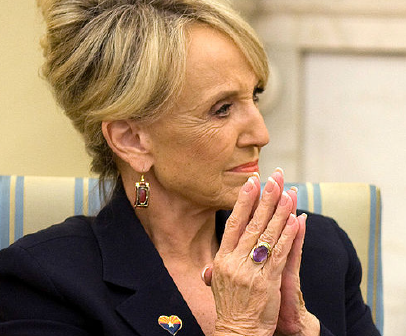State-Sanctioned Discrimination

BY JOHN NIKITAS
Last February, both chambers of Arizona’s state legislature narrowly passed a bill expanding the scope of Arizona’s Religious Freedom Restoration Act to cover individuals and corporations as well as religious institutions. Although Arizona’s Republican Governor, Jan Brewer, eventually vetoed SB 1062, exploring the politics surrounding the bill yields some interesting insights regarding the future of the debate over gay rights in more conservative regions of the United States.
Supporters of the bill argued that SB 1062 was critical to strengthening the state’s existing laws that protect against religious discrimination. They hoped to prevent lawsuits similar to a recent case in New Mexico in which a photography company was sued for refusing to photograph a same-sex couple’s commitment ceremony. Opponents of the bill countered that a lawsuit like the one in New Mexico could not occur in Arizona regardless of whether SB 1062 passed or not, since Arizona does not have any laws prohibiting discrimination based on sexual orientation. They also pointed out that businesses in Arizona can already refuse to serve gay customers without facing any repercussions. Rather than correct this lack of legal protection for gay individuals, this bill would have further eroded civil rights for homosexuals by legally protecting blatant discrimination. By allowing business owners to refuse to serve gay customers as long as they can cite a religious objection, SB 1062 would have allowed an individual’s religious beliefs to supersede civil rights and equal protection. In doing so, it violated the principles set forth by the Civil Rights Act of 1964, which prohibits businesses from refusing services based on race, gender, or religion, regardless of a business owner’s moral or religious convictions.
Unsurprisingly, SB 1062 provoked vocal opposition from an unlikely alliance including not only Democrats, but the NFL, Apple, the Republican establishment, and even a few of the state senators who voted in favor of the bill. The president of the Greater Phoenix Economic Council argued that if SB 1062 were to become law, it would make it “difficult to attract any kind of talent or investment or events” to Arizona. As a result, Governor Brewer gave into pressure and vetoed the bill, ensuring that, at least for now, the push for such bills will stall.
Even though Arizona’s bill was ultimately vetoed, the fact that it came so close to becoming law is alarming. It underscores the necessity of a national law that prohibits discrimination based on sexual orientation and that makes it easier to sue if such discrimination occurs. Until such a law is passed, the rights of gay couples and individuals are up to the whims of state legislators, who have demonstrated how easily they can be pressured to pass a bill that turns back the clock to a time when businesses could openly refuse to serve marginalized groups of the population without repercussions. Arizona’s bill should serve as a wake-up call to all of us that even though the equal protection clause is enshrined in the Constitution, we need to do more to protect that right for all the marginalized groups in our population.
It is particularly surprising that SB 1062 poses such a fundamental threat to our constitution when it does not even mention homosexuality. Instead, the bill is framed purely in terms of freedom of religion, which is one of the factors that garnered it so much support. This is the Republican Party’s latest strategy to enact a socially conservative agenda: disguising discriminatory bills as expansions of freedom of religion. In addition to using freedom of religion to argue for the treatment of homosexuals as second-class citizens, Republicans have also used it to argue that employers should be able to restrict their employees’ access to insured contraception and that federal funding for preventative services at Planned Parenthood should be eliminated altogether. With recent polls from Gallup showing that 59 percent of Americans now believe that same-sex relations are morally acceptable, up from 40 percent back in 2001, and that 91 percent of Americans say that birth control is morally acceptable, conservatives are using the freedom of religion as a last-ditch effort to impede the gay rights movement and to limit access to birth control. However, this perversion of the First Amendment not only trivializes freedom of religion by using it as a political ploy, but it also sets a dangerous precedent of imposing a single group’s moral and religious beliefs on the rest of the country.